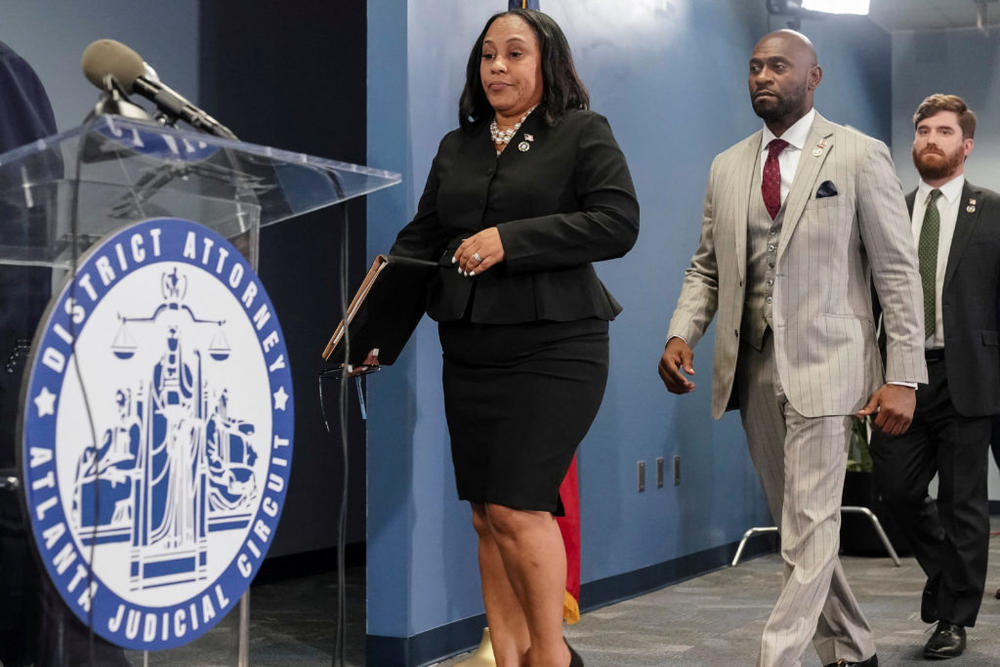
Caption
Fulton County District Attorney Fani Willis arrives at a press conference with prosecutor Nathan Wade after a Grand Jury brought back indictments against former president Donald Trump and his allies in their attempt to overturn the state's 2020 election results, in Atlanta, Georgia, U.S. August 14, 2023. REUTERS/Elijah Nouvelage.
